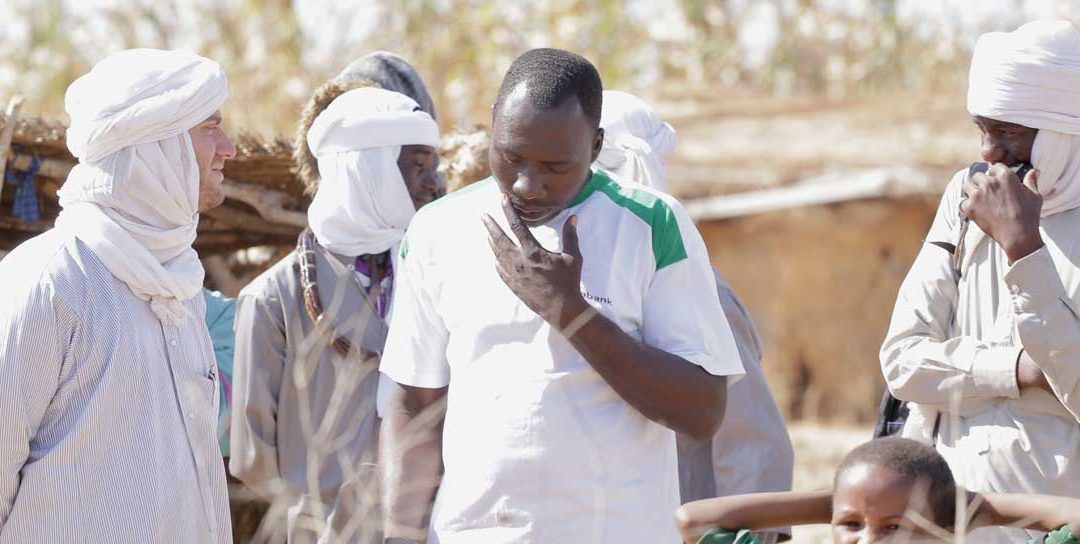I live in the very heart of Africa, 200 miles from the nearest paved road, in a region cut off by water in every direction for four months out of the year. Sound exotic? Exciting? It kind of is—until we run into other people. There are 5,000 of them in our village, so that happens on a fairly regular basis. And that’s the point. You, the Church, have sent me, my wife Carrie, and our five children, to bring God’s good news of salvation to a people who do not know him. We’re here for the people, not the scenery. And people are complicated.
Our village chief invited us to settle here for the good of their village. A couple of years later, he had a falling-out with the government. They stripped him of his credentials and installed a new chief. Happens to be the old chief’s neighbor. So that’s awkward, right? But the majority of the village people don’t give a bird’s nest what the government says, they still like the old chief. He still acts like a chief, fulfills the duties of a chief for his supporters, and in fact, is the chief. We now have two chiefs. And their partisans don’t talk to each other. Village relationships and power structures have been upended. When I first came to this village, all the men gathered together to give us a plot of land. Today, all the men will never show up to a meeting together.
Here am I, foreign missionary, bringing a message of God’s peace for all people to a village hopelessly divided. How do I do this? Shall I go around saying, “Believe in Jesus and he’ll fix it all”? I don’t think it’s quite like that. These are people of a different faith, and often their teachers are able to bring about peace in conflicts through the teachings of their religion. I am certainly not some traveling salesman peddling one religion over another. But what am I? What are you in your divided community? A warring partisan? A disinterested outsider? Neither of these can speak to the heart of divided people.
It seems a lot of Christians have been thinking on these very questions of late. That must be why Pope Francis has written an encyclical on the topic called Fratelli Tutti—“All Brothers.” He addressed this encyclical not just to Catholics, or even Christians, but to “all people of good will.” That’s us, I presume. He pleads for a fraternal love between all people, such as the Good Samaritan showed to a man, beaten and bloody, in Jesus’ parable (Luke 10:25-37). It is a reminder that I need: we share the love of Jesus not because we are Christians and they’re not, but because of our common humanity. We are all divided and broken, and Jesus gives to us all a great, unshakable hope.
Francis writes: “Here we have a splendid secret that shows us how to dream and to turn our life into a wonderful adventure. No one can face life in isolation… We need community that supports and helps us, in which we can help one another to keep looking ahead. How important it is to dream together!”
He acknowledges that “a plan that would set great goals for the development of our entire human family nowadays sounds like madness”—and yet that is what Jesus gives! His blood forgives our sins and heals our wounds so that we can be healers like the Good Samaritan. And like Jesus himself, as he ate with sinners, traitors, and prostitutes, and helped them in real, daily, physical ways. Francis hit me between the eyes with this statement: “The decision to include or exclude those lying wounded along the roadside can serve as a criterion for judging every economic, political, social, and religious project.” That includes my work in this divided village.
No, I’m not jumping into the fray. I cannot fix this village and resolve the conflict between two chiefs vying for power. But that does not put me on the sidelines. We simply have another agenda, you and I. The kingdom of heaven has a different politic, another power structure that “lifts up the lowly,” in the words of Mary when she was pregnant with this kingdom’s King.
This kingdom has an exceptionally large embrace. In fact, Francis says, “all things human are our concern.” In the embrace of our crucified and risen Savior, those people whom this world does not even take the time to consider—divided villages in the heart of Africa, a girl who walks the streets of Ishinomaki, a neighbor who can’t kick his opioid addiction—these are the ones who get lifted up. That lifting is done by you and me, the hands and feet of Christ. But “if the music of the gospel ceases to resonate in our very being, we will lose the joy born of compassion, the tender love born of trust, the capacity for reconciliation that has its source in our knowledge that we have been forgiven and sent forth” (Pope Francis, “Fratelli Tutti,” 2020).
Nathanael S. and his wife Carrie serve the Church of the Lutheran Brethren as missionaries in Africa.

